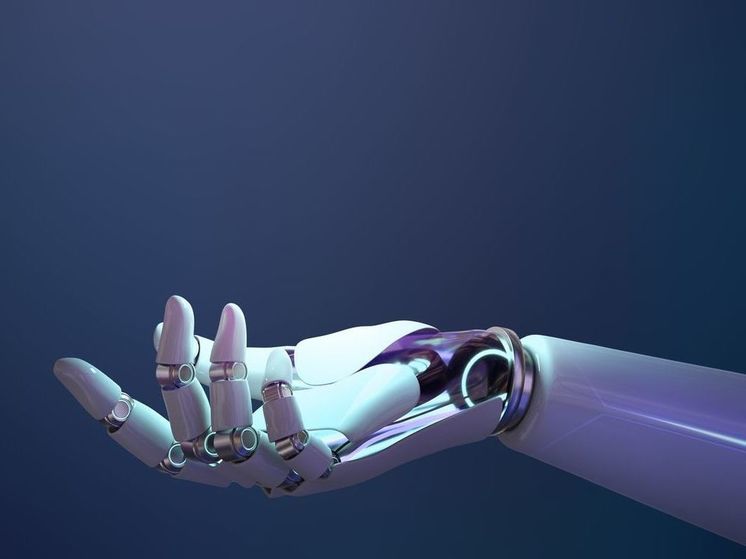The “ideal” AI employees don’t take vacations or take cigarette breaks
AI employees will impact “every office worker” by 2030, warns ChatGPT developer Sam Altman. AI agents can independently learn new skills and use software. They will be able to perform roles such as nurse or software developer.

Imagine your dream employee: they don't take breaks, don't go on vacation and don't make appointments, writes the Daily Mail. Some industries may soon employ these types of workers. In recent months, several companies have announced the creation of artificially intelligent agents, or «artificial workers.»
These digital workers could change the way we work — answering emails, processing invoices, responding to requests to customer service and manage your calendar—possibly eliminating administrative staff or expensive third-party technology.
DailyMail.com spoke to Ed Broussard, CEO of artificial intelligence company Tomoro, who revealed that the productivity boost offered by these artificial employees will be so significant that it will lead to a three-day work week.
Broussard, whose company is working with Sam Altman's OpenAI, told DailyMail.com that we will see rapid progress in working with such workers in the next two years.
Recently, artificial intelligence technology company Nvidia and healthcare company Hippocratic AI announced a collaboration to develop «artificially intelligent medical agents.» Companies hope their new artificial intelligence nurses can help solve the global healthcare worker shortage.
Researchers from Hippocratic said that "nurses" will be trained in «extensive collection of sensitive data, including care plans, health care regulations, medical guidelines, drug databases and other high-quality medical records.»
Currently, AI-enabled healthcare professionals have been tested by more than 1,000 nurses and 100 doctors in the United States.
Earlier this month, AI software company Cognition became the first to develop an autonomous AI software engineer, called Devin.
Devin can build websites and software applications on his own within 20 minutes and can use the Internet to teach his skills.
"Engineer" was tasked with accepting requests to create websites, and he decided to start charging money himself, according to a Twitter post posted by Wharton professor Ethan Mollick.
In addition to AI workers, companies are already using AI-enhanced applications, with 40 percent of HR functions at companies worldwide being performed using automated technologies, reports BBVA OpenMind.
The AI workforce is just getting started , notes the Daily Mail.
Broussard told DailyMail.com he believes the progress that will be made in just the next two years will be more significant than anything the industry has achieved in the previous 75 years, adding, that by the end of the decade, all office jobs will be «transformed» artificial intelligence agents.
And the CTO isn't the only expert to speak out about the profound changes AI could bring.
Bill Gates, founder of Microsoft, predicted the use of AI in his book The Way Forward. almost three decades ago. He now believes artificial workers will have a huge impact on education and healthcare, claiming they will be «the biggest revolution in computing since we went from typing commands to clicking icons.»
Gates believes that artificially intelligent agents will replace Internet search engines and shopping sites such as Amazon.
Broussard believes that the productivity gains enabled by digital workers will be so significant that they will lead to shift to a three-day work week, and adds that in the near future technology will take over administrative and research functions in several industries, including legal, investment and marketing.
He put it this way: “One of the agents we use most often is the fact retrieval agent. It specializes in reading large quantities of documents and extracting all the facts and useful information in a form that other AI agents can easily read. This can then be used for a variety of different business applications: reviewing legal documents, investment analysis, customer research, even providing the necessary information to call center employees or negotiating prices for large contracts.
Ed Broussard says that large organizations that fail to start using «artificial employees» will simply disappear in the next decade.
Broussard told DailyMail.com: “Organizations that quickly adapt, experiment and work on human-AI interactions will see huge gains in productivity, effectiveness and well-being. Those lagging behind will essentially disappear on their own. Large organizations have a huge advantage because they have a lot of customers, personal data and access to computing power, but the value of all three of these factors will decrease, and large companies that do not take advantage of their advantages will soon begin to decline and, ultimately, will disappear, being replaced by new firms working on the basis of artificial intelligence”.
The expert also predicted that agents with artificial intelligence will completely abandon administration — people will not have to search for information, fill out forms or book hotels, but instead will turn to a digital assistant.
He added: "We will see completely different ways of working, new roles emerging, and organizations shifting work that typically limits human creativity to AI agents– it can liberate people. As the impact a person can have begins to depend on the number of hours they spend at work, we may have to rethink the way we think and work. It's entirely possible that we'll move to a three-day work week or even less, and the best performers won't be the smartest and hardest working, but the ones who train the best AI agents.»
Broussard, however, argues that AI agents are not yet ready to completely replace a nurse or a software developer: “We are still a long way from an AI agent completely replacing a nurse or a software developer. We've seen agents perform some of these functions and perform them well, for example artificial intelligence is often better at identifying cancer cells in scans than humans, but that's not the whole job of a radiologist. It is much more likely that agents will be created as capabilities that can be combined for different purposes.

























































Свежие комментарии